Name: Anchorage Zen Community
Resident Priest: Genmyo Jana Zeedyk
Year founded: 1986
Number of members: About 20
Meeting place: A converted garage
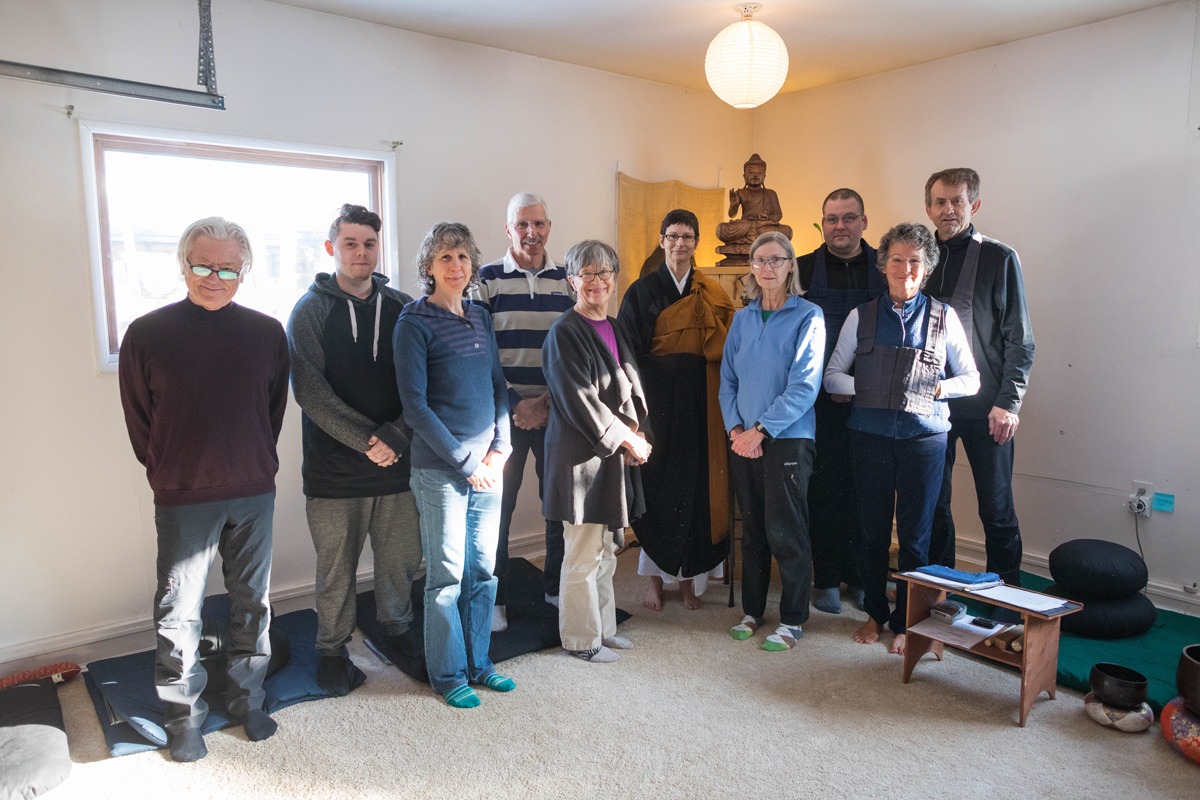
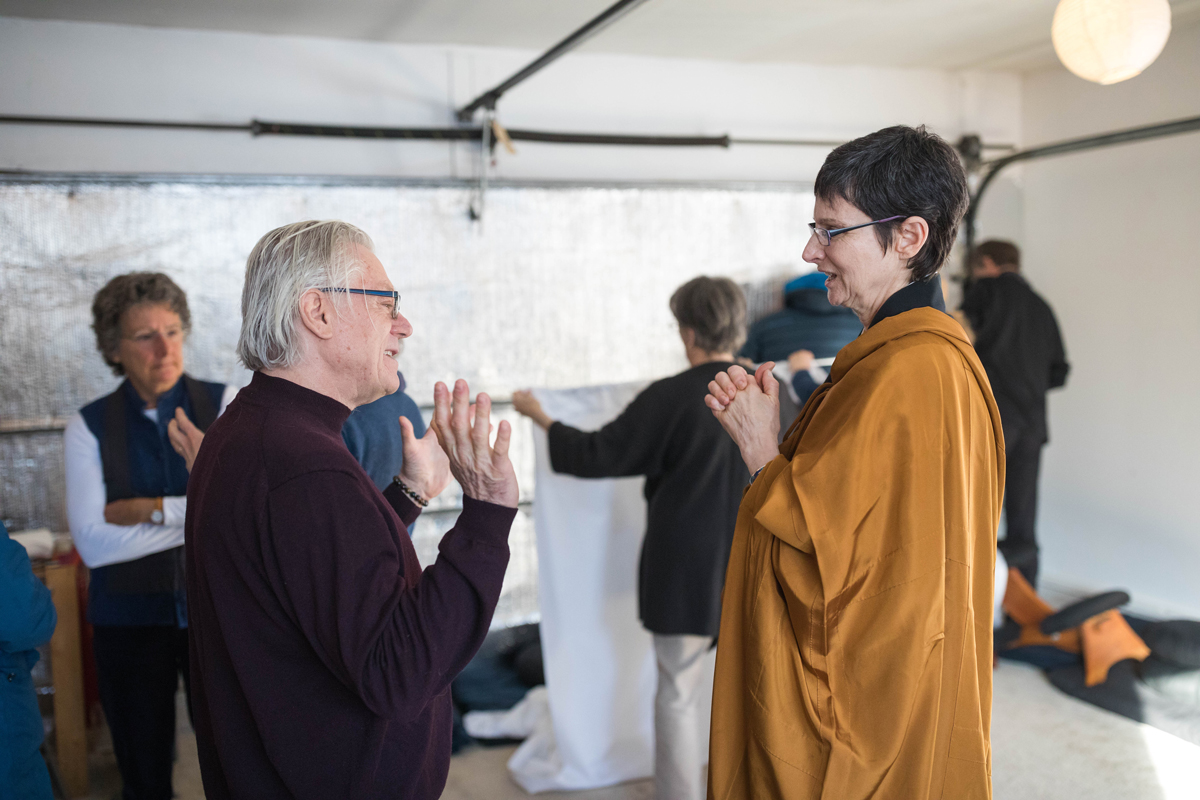
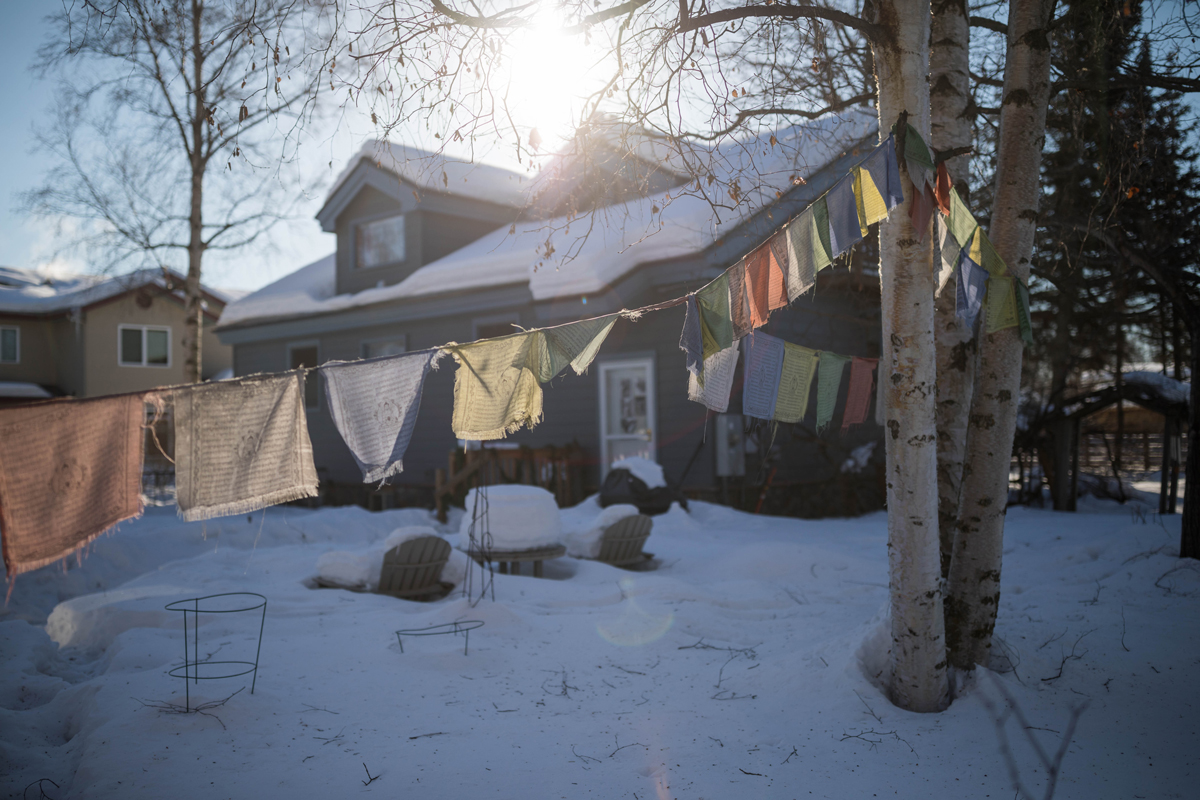
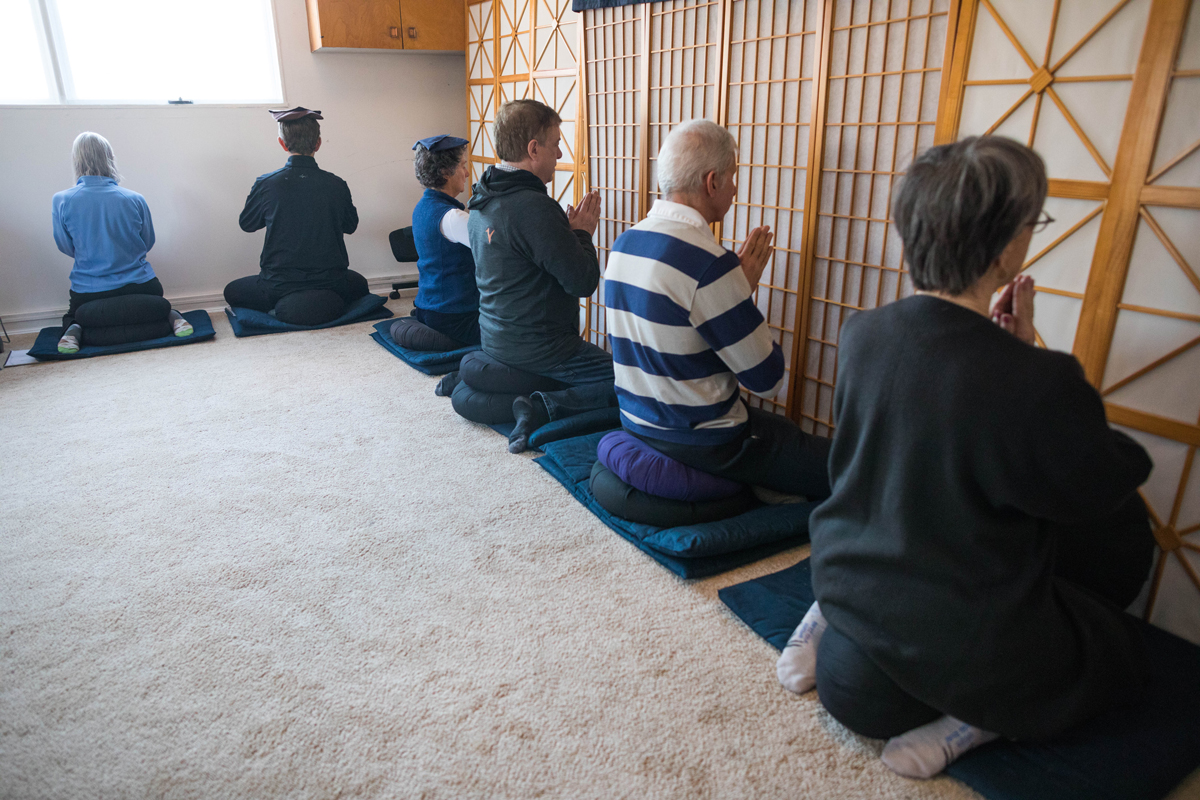
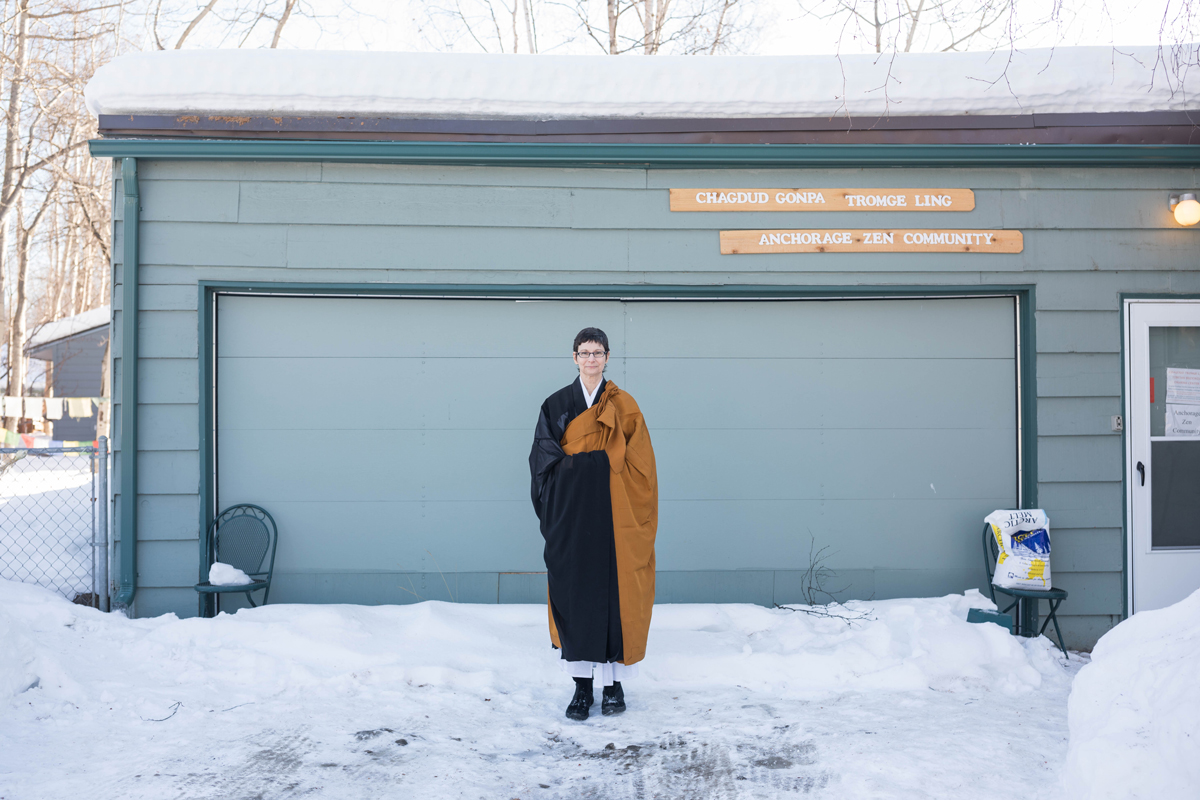
What is the essence of what Anchorage Zen Community offers?
Genmyo Jana Zeedyk: We offer a warm and supportive atmosphere for all people interested in cultivating the way of liberation, compassion, and responsiveness to conditions of daily life. That’s what we try to practice, and that’s what we try to offer.
How did the community start?
Last year was the 30th anniversary of the Anchorage Zen Community becoming a dedicated Zen group. Before that, people from many different traditions were sitting together, and then the groups took on more distinctive flavors.
How long have you been resident teacher?
I arrived five years ago. I’m in my sixth year now of guiding the community. I did my ordination and training in Japan. And in the States I studied with the Robert Aitken line of Zen, the Diamond Sangha, which is a layperson line. I have permission to teach in that tradition.
Did you move to Anchorage specifically to take this role?
Yes, I did. I was finishing up my time in Asia; I had friends in Anchorage, and the community was looking for a Zen priest.
I’ve really been moved by the group’s longevity. Two of the founding members are still sitting with the group. There’s a real commitment to practice, and the group’s spirit is very inquisitive and welcoming.
What does the Anchorage Zen Community offer in addition to zazen (meditation) practice?
There’s a monthly dharma school for children offered by a couple, Tim Jester and Annette Marley, that’s very well attended. They do short periods of meditation, a generosity ceremony, yoga stretching, and other activities.
For 17 years there’s been a commitment to sharing the dharma in the Hiland Mountain-Meadow Creek State Correctional Center, a women’s prison. Once a week, four women go to the prison to do meditation and yoga, and to hold a discussion. A few years ago, some men started going to a men’s prison—that’s a little more difficult, because most of the men’s prisons are quite a bit further away. And so they don’t go as often.
Also, last year we raised donated goods for a battered women’s shelter here in Anchorage.
Are there any challenges related to being located in Alaska and staying connected to the Zen community in the United States and worldwide?
People here tend to use the phrase “go outside.” “Outside” means leaving the state of Alaska. Those who live here are pretty big travelers and maintain the connectivity they want on an individual basis.